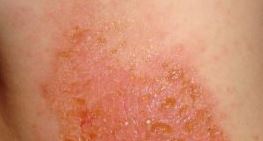-
Lohff & Pfeiffer
About Lohff & Pfeiffer
Iimprint
Contact
Newsletter
Location
L&P team
- Instruments
General
Trade options
About clarinet
Search specific instrument
Ab-clarinet
Eb-clarinet
D-clarinet
C-clarinet
Bb-clarinet
A-clarinet
Mozart basset-clarinet A
G-clarinet
Bassethorn F
Alto-clarinet Eb
Bass-clarinet
Contraalto Eb-clarinet
Contrabasse Bb-clarinet
German-Albert system Bb
Reform Boehm A & Bb
Peter Bastian Instruments
Plateau clarinets
Quartertone clarinet
- L&P Optimization
Optimization
Customization
Specialities
Special Keywork
- Accessories
General
Care products
For instruments
Reeds
Tools for reeds
Straps and hand rests
- Repair
Book time
About Repair
Maintenance
Plating-Surface treatment
Pads
Padding style
Cracks
Tone hole problems
Joints
- Tips & Advice
How to..
Videos
Worldwide external information
Problems & help
Education & learning

.Nickel plating and protection
Nickel plating is the cheapest but also the most problematic protection for the keys. Nickel is one of the most common heavy metals on earth and can be found in indoor keys, money, cheap jewelry, and many types of food.
The alarming frequency of sensitization to nickel, especially in the US, has caused nickel to be selected as the Allergen of the Year! in 2008 by the American Contact Dermatitis Society. Nickel as a coating in contact with the skin has already been regulated by the nickel EU directive [94/27/EC] since 1994.
Here is a peer-reviewed and edited version of a paper delivered at NASF SUR/FIN 2013 in Rosemont, Ill., on June 12, 2013.
"Nickel can't be digested and will be slowly stored in the kidneys and liver. Once a certain level is exceeded, the body might react aggressively, resulting in an allergic reaction. Skin irritations and discolorations, insomnia and even depression are observed. Due to the enormous increase in such reported cases, the sale of nickel or nickel-plated products is restricted or even banned in some countries. Our recommendation is clearly to avoid nickel plated instruments.
Introduction to Nickel dermatitis
Nickel allergy or nickel dermatitis is one of the most common types of contact allergic dermatitis. In many countries, electroplated nickel coatings have been banned in applications involving direct and prolonged skin contact. This is also the case when a nickel substrate or a nickel-plated surface is coated with a protective layer of another metal such as chromium, gold, silver, or a thin organic coating/paint. The reason is that even small pinholes, scratches, or other defects in the protective layer may cause the release of nickel ions by corrosion. This is especially the case when the corrosion is accelerated by a galvanic coupling with other metals and in the presence of a sweat induced electrolyte, containing among others chloride, lactate, or ammonia ions. Nickel ions form a lactate complex as well as ammonium complexes, which significantly increases the corrosion speed of nickel by reducing the thermodynamic stability of nickel."
The affected skin areas become intensely itchy and may become red and blistered (acute dermatitis) or dry, thickened, and pigmented (chronic dermatitis) as a consequence of the allergic reaction. Nevertheless, nickel-plated instruments are preferred by some players for two reasons: they feel a perceived difference to the sound of the instrument. The smoothness of the surface is very appealing if it becomes necessary to slide the little fingers from one key to another.
Some players believe that the nickel has an effect on the sound. We compared many instruments to silver and found no difference in sound quality. Our conclusion is that any differences depend on the individual instrument rather than the plating.
For players who still prefer nickel plated instruments we can offer three solutions. This also applies to owners of nickel plated instruments who would like to reduce their exposure to nickel.
1. There is a new type of nickel plating available, called a tin nickel, which reduces the risk of nickel allergies. We can apply it to any instrument on demand. It will need to be done in conjunction with an overhaul.
2. Temporary protection can also be achieved by covering the key parts that are touched when playing with a layer of clear lacquer such as nail polish. This will need to be reapplied when worn down.
3, We can apply a new Nano-technology 2-compound epoxy coating to the keys. This can also be done without an overhaul
Help us to get better
Was this article helpful?
Comments, additions or questions are always welcome at: info@clarinet.dk(C) 2014 - by Lohff & Pfeiffer - Brøndbyvej 211 - 2625 Vallensbæk + 45 3535 8643 - SE DK 1895 7485 info@clarinet.dk - Instruments






